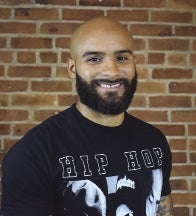
Viewpoint: Teaching through a critical race framework at the Clemente Course
Those of us who are racialized and exist in economically marginalized spaces in the U.S. rely on critical thinking skills for survival. We constantly analyze, reflect, and process information in real time to help us to survive in a hostile society. The killings of George Floyd and Breonna Taylor, along with the unjust sentencings of Cyntoia Brown Long and Rogel Aguilera-Mederos are a few examples reaffirming the U.S.’s aggression toward racialized people.

Systemic racism is not only found in our judicial system but in the workplace. In a 1975 keynote address to Portland State University, the novelist Toni Morrison, said, “The very serious function of racism is a distraction. It keeps you from doing your work. It keeps you explaining over and over again, your reason for being.”
Naysayers refuse to accept that race plays a role in shaping the experiences, opportunities, and productivity of an individual. Consequently, white supremacy remains intact, limiting the productivity of its perpetrators and victims: the former squander their mental and physical energy reinforcing an illogical system and the latter expend their time resisting it.
When I was offered to teach the critical thinking and writing course for Clemente Course in the Humanities in Worcester and learned about the program's mission to introduce marginalized students to the humanities, I considered it a great opportunity to teach the course through a critical race framework. My main priority was helping students learn that thinking and writing are not neutral processes, that our beliefs, more specifically our race, shape the questions we ask, the thoughts we generate, and at times, can cloud our logic and reason.
At the beginning, some students disliked, while others enjoyed, that I centered race in the classroom. Although some students felt a sense of discomfort, I helped foster a safe space where everyone was respected and could share their thoughts, ideas, and opinions irrespective of their views. As the semester went along, the discussions intensified, but most importantly, their racial consciousness awakened. Students began to understand why it is critical to know how white supremacy manifests in our daily lives. For too long white supremacy has normalized a Eurocentric perspective suppressing the experiences, knowledge, and history of non-European people.
By the end of the course, Clemente students no longer considered race trivial but recognized it as important in shaping the human experience. With a better understanding of the racial structure of the U.S., they began to feel responsible for helping raise consciousness about racial injustice. Without centering race, we risk perpetuating white supremacy in our institutions and reinforcing the dehumanization of people of color. If we aspire to maximize our potential, creativity, and productivity, we can begin to unlearn white supremacy and take action.
José I. González, a PhD student at UMass Amherst, teaches the Clemente Course in Worcester.
WBJ Web Partners
Excellently stated.








1 Comments